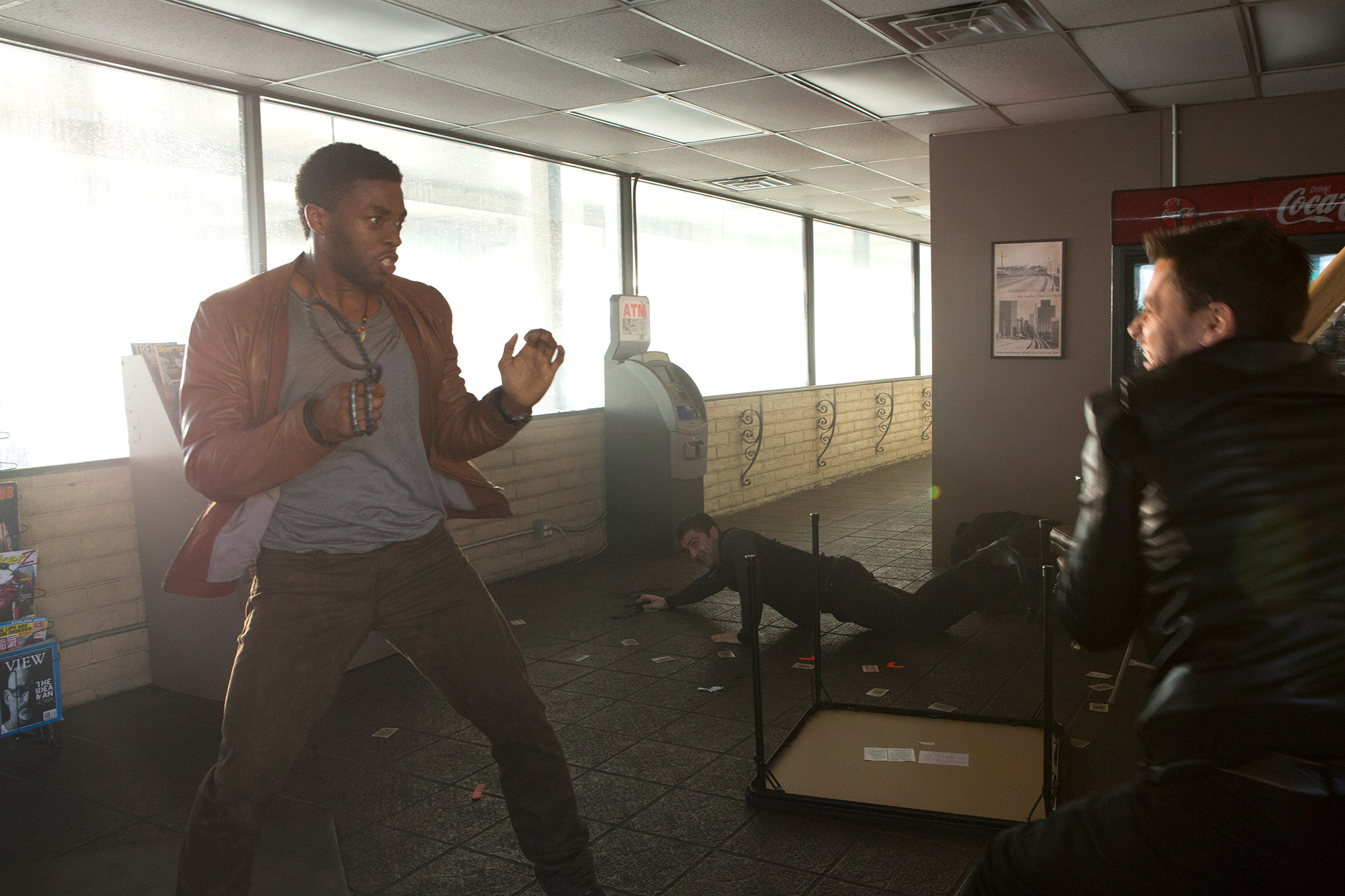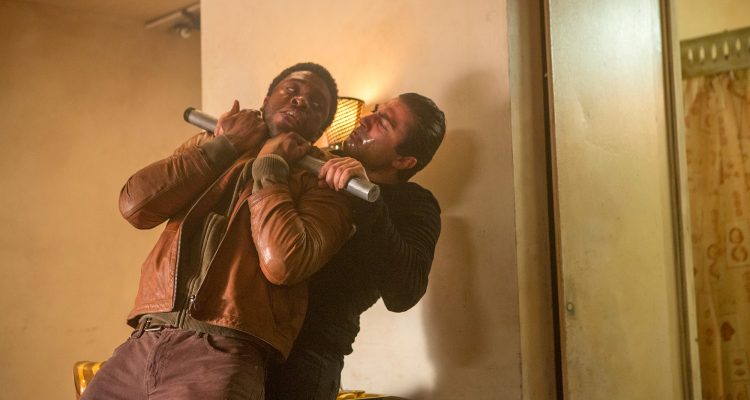Film noir has been around for so long that it’s generated a slew of sub-genres: like “L.A. noir,” where the story and atmosphere are tied specifically to the sun-soaked culture of Southern California; or “obsessed-outsider-on-a-mission noir,” where one driven individual travels to a city to track down a missing friend or family member. “Message from the King” is a fusion of those two, calling back to movies like “The Limey,” “Hardcore,” and “To Live and Die in L.A.” in its story of a mysterious, uncommonly lethal South African man who tours both the seediest fleabag motels and the ritziest Hollywood mansions in order to figure out why he hasn’t heard from his sister lately. But while director Fabrice Du Welz elicits strong performances and gets the hazy SoCal texture right—and while co-writers Stephen Cornwell and Oliver Butcher come up with a serviceable plot, which keeps expanding its scope in unexpected ways—there’s something just a little off about this picture, which keeps it from connecting.
 It’s not the cast’s fault, that’s for sure. Chadwick Boseman gives another of his quietly commanding performances as Jacob King, who arrives in Los Angeles from Cape Town with barely enough money to book a room for a week. After checking into the cheapest place he can find, Jacob heads to his sister Bianca’s last known address, and begins piecing together what happened to her since she moved to L.A. Very quickly he learns that she got married to low-level gangster, who then left her to take care of his young son from a previous relationship. Following Bianca’s trail leads the hero to more serious crooks, as well as to a “dentist to the stars” (played by Luke Evans), a desperate movie producer (Alfred Molina), and a mobbed-up politician (Chris Mulkey).
It’s not the cast’s fault, that’s for sure. Chadwick Boseman gives another of his quietly commanding performances as Jacob King, who arrives in Los Angeles from Cape Town with barely enough money to book a room for a week. After checking into the cheapest place he can find, Jacob heads to his sister Bianca’s last known address, and begins piecing together what happened to her since she moved to L.A. Very quickly he learns that she got married to low-level gangster, who then left her to take care of his young son from a previous relationship. Following Bianca’s trail leads the hero to more serious crooks, as well as to a “dentist to the stars” (played by Luke Evans), a desperate movie producer (Alfred Molina), and a mobbed-up politician (Chris Mulkey).
Those gradual steps up L.A.’s ladders of power keep “Message to the King” relatively lively. Every time Jacob thinks he’s hit a dead end in his quest to find out how Bianca’s life went awry, he finds a clue that leads him to people who have more to lose if he squeezes them. At first, it appears that Jacob’s sister was just a run-of-the-mill party girl, who liked cocaine and bad boys. But the more he pokes at folks who don’t want to be poked, the more Jacob finds out about how the city’s demimonde is interconnected. Druggies owe money to mafia types, who do jobs for power-brokers, who do favors for the elite, who exploit the druggies. It’s the circle of filth.
The biggest problem with “Message to the King” though is that while its story moves forward in a way that makes sense, Du Welz’s pacing is too slow and too choppy for the movie to build up much momentum. A lot of the film feels like filler—including the long conversations that Jacob has with his neighbor Kelly (Teresa Palmer), a single mother and part-time prostitute whose scenes always seem shoehorned-in. It doesn’t help that “Message to the King” already has another fragile female character, Bianca’s friend Trish (Natalie Martinez), who could’ve served all of Kelly’s narrative functions if Cornwell and Butcher had streamlined their script a bit. Instead, too much of this story is artificially extended, giving Du Welz more time to dwell on Los Angeles squalor (which is admittedly well-shot by cinematographer Monica Lenczewska, with an eye toward accentuating the scuzz).
 “Message to the King” isn’t a chore to watch by any means; and there are moments that suggest the more colorful neo-noir that might’ve been. The dingy motel Jacob stays at is almost a character in and of itself, with a proprietor who reads off a litany of no-nos when the hero checks in and then later moves him without warning so that the motel’s hookers can ply their trade in “the only room where the porno works.” Molina’s sleazy producer is a vivid character too, with his attentive staff of aggressively effeminate men. And Jacob makes for a classic underdog, who can do serious damage to a succession of dangerous dudes with just a few items he picks up at the hardware store.
“Message to the King” isn’t a chore to watch by any means; and there are moments that suggest the more colorful neo-noir that might’ve been. The dingy motel Jacob stays at is almost a character in and of itself, with a proprietor who reads off a litany of no-nos when the hero checks in and then later moves him without warning so that the motel’s hookers can ply their trade in “the only room where the porno works.” Molina’s sleazy producer is a vivid character too, with his attentive staff of aggressively effeminate men. And Jacob makes for a classic underdog, who can do serious damage to a succession of dangerous dudes with just a few items he picks up at the hardware store.
But therein lies the trouble with this film. While taking pains to be arty and evocative, Du Welz and company sometimes forget that they’re making a pulp thriller, about a tough nut with a righteous cause. It takes way too long before any kind of two-fisted violent action occurs. Why hire Chadwick Boseman to play man who can disfigure bad guys with a bicycle chain and then wait nearly half-hour to let him do it? [C+]
Click here for our complete coverage of the 2016 Toronto International Film Festival

